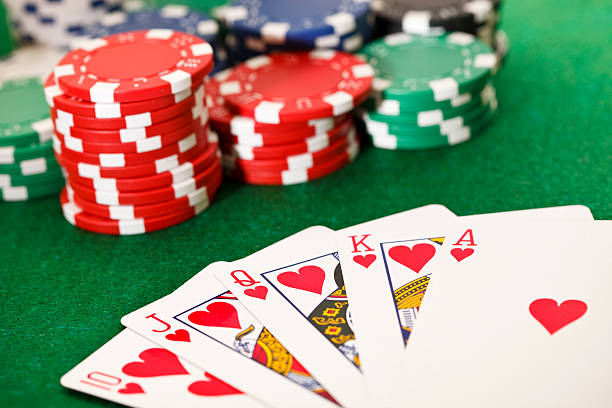Poker is often called a game of skill and psychology, where understanding the mind is as important as understanding the cards. One of the key factors that separates average players from great ones is emotional control. Poker can be intense and unpredictable, leading to frustration or excitement. Players who manage their emotions effectively avoid making impulsive decisions. This calm mindset helps maintain a clear strategy throughout the game. Learning to stay composed under pressure builds mental strength that can be used in many stressful situations beyond the game.
Accepting Losses Builds Resilience and Motivation
The psychology of winning and losing is a critical part of poker. Players must accept that losses are inevitable and not let disappointment cloud their judgment. This acceptance helps them bounce back quickly and continue playing at a high level. Developing a healthy attitude towards failure encourages perseverance and resilience. These qualities are essential not only in poker but also in life’s many ups and downs. The mental toughness gained from poker helps players stay motivated and focused on long-term goals despite setbacks.
Controlling Tells Improves Self-Awareness and Discipline
Another psychological aspect is the ability to control tells, which are unconscious behaviors that reveal information about a player’s hand. Skilled players practice hiding their emotions and reactions to avoid giving away clues. This self-awareness and control improve emotional intelligence and discipline. Learning to manage how you present yourself in high-stakes situations builds confidence and professionalism. In social or business settings, this ability to stay composed and mask true feelings can be a powerful tool for success.
Managing Stress Enhances Focus and Performance During Play
Effective decision-making in poker often relies on managing stress and maintaining focus during long sessions. Players who practice relaxation techniques and mental exercises can reduce anxiety and improve concentration. This focus enables them to think clearly and avoid mistakes. Over time, these skills improve overall mental health and performance in other areas. The habit of staying calm and attentive under pressure is useful for public speaking, negotiations, and daily challenges.
Reading Opponents’ Psychological Patterns Boosts Strategic Advantage
Poker players also learn to read psychological patterns in opponents. Understanding motivations, fears, and tendencies allows players to predict actions and make strategic moves. This skill of analyzing human behavior enhances social interactions and problem-solving abilities. Outside of poker, being able to understand others’ perspectives and anticipate reactions leads to better communication and teamwork. The psychological insights gained through poker make players more empathetic and tactful.
Bluffing Requires Confidence and Mastery of Psychological Influence
Bluffing requires strong mental control and psychological insight. It involves convincing opponents you have a stronger hand than you do, requiring confidence and timing. Successfully pulling off a bluff can shift the momentum of the game. This teaches players the power of influence and persuasion. The ability to sway opinions and decisions through confidence and subtle cues is useful in leadership and negotiation. Poker provides a safe environment to practice these psychological tactics that apply in many real-world situations.
Conclusion
Poker is a powerful tool for developing psychological skills and emotional control. The game challenges players to manage their feelings, handle stress, and understand others’ behavior. These lessons build mental toughness, emotional intelligence, and strategic thinking that go beyond poker. By mastering the psychological side of the game, players improve their chances of success both at the table and in everyday life. The balance of skill, psychology, and emotional discipline makes poker a unique way to strengthen the mind.
